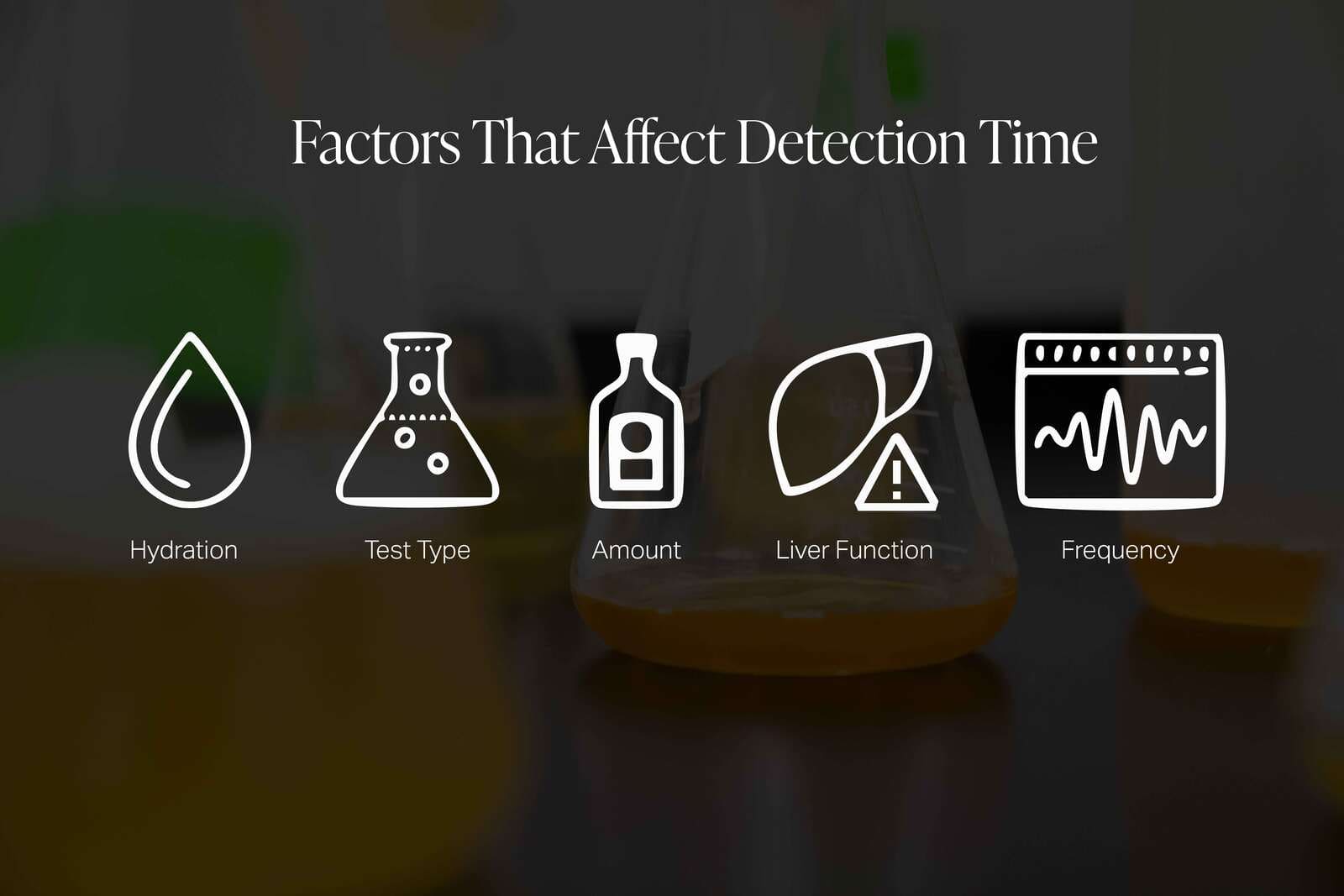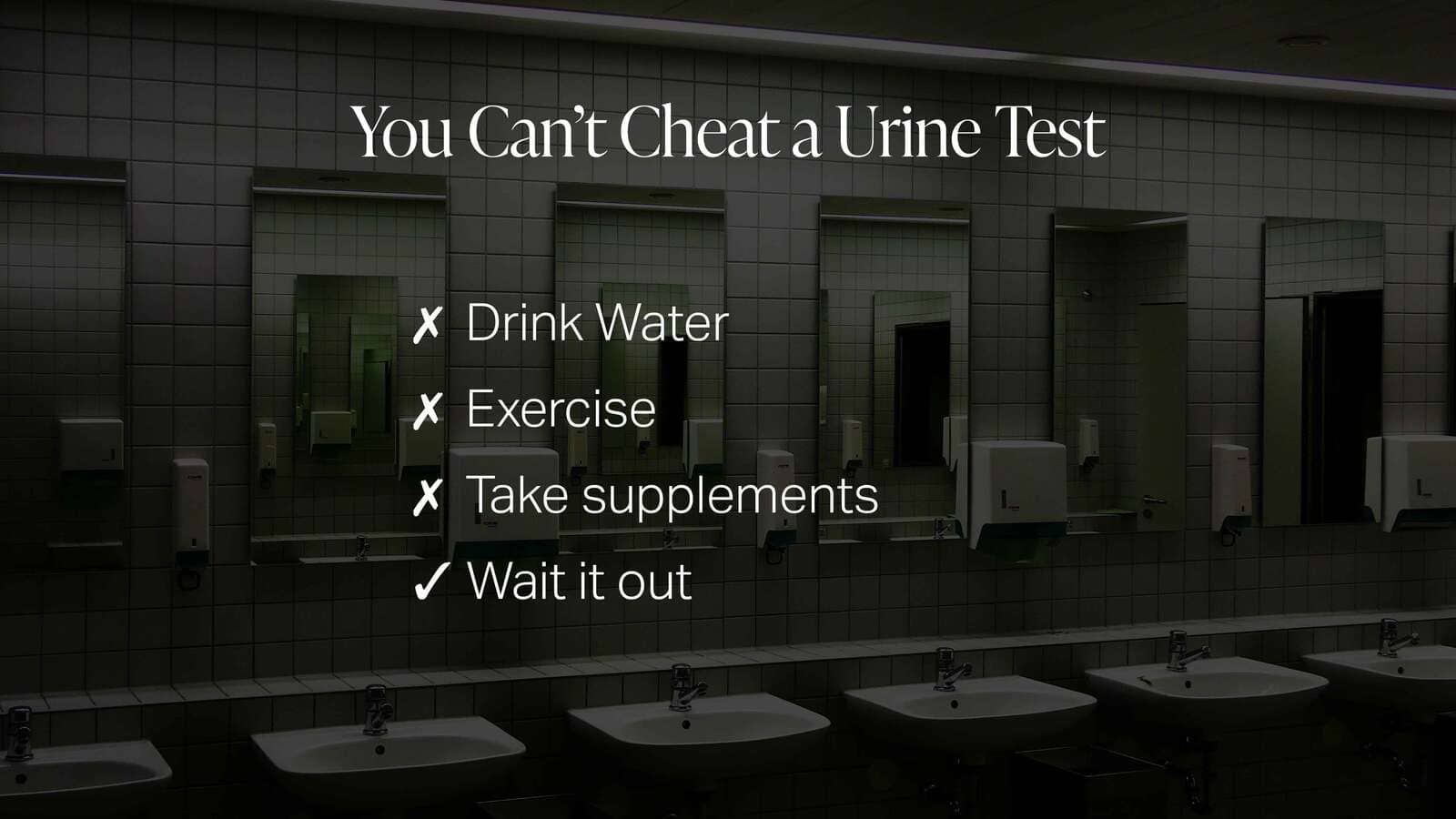Table of Contents
Alcohol in urine can be detected for varying lengths of time depending on the testing method, the amount consumed, and your individual physiology. On average, standard urine tests can detect alcohol for 12–48 hours after your last drink, while more advanced ethyl glucuronide (EtG) tests can detect alcohol use for up to 80 hours. Understanding these detection windows is important for both medical and legal purposes, as well as for those monitoring their recovery progress.
How Alcohol Passes Into Urine
When you consume alcohol, it is absorbed into your bloodstream through the stomach and small intestine. The liver metabolizes the majority of alcohol into non-intoxicating byproducts, primarily through the action of alcohol dehydrogenase (ADH). However, a small portion of unmetabolized alcohol is filtered by the kidneys and excreted into urine. Because urine collects in the bladder over time, it can still contain traces of alcohol or its metabolites long after you stop drinking.
- Standard Urine Tests: Detect ethanol directly and are generally only effective within the first day or two after drinking.
- EtG Tests: Detect ethyl glucuronide, a byproduct of alcohol metabolism that remains much longer. These are highly sensitive and used in many monitoring programs.
Factors That Influence Detection Time
Several factors can impact how long alcohol stays in your urine:
- Amount Consumed: More alcohol results in higher urine concentrations and a longer detection window.
- Testing Method: EtG testing is far more sensitive than standard ethanol detection.
- Hydration Levels: Drinking more water may dilute ethanol concentration but will not remove EtG metabolites.
- Liver Function: Impaired liver health can slow alcohol metabolism, prolonging its presence in the body.
- Frequency of Use: Chronic or heavy drinkers may have detectable metabolites for longer periods.

Why Urine Testing Matters
Urine testing is commonly used in workplace screenings, legal monitoring, and medical evaluations. For those in recovery, it can help track progress and detect relapses. However, false positives can occur in rare cases from incidental exposure to products containing alcohol, such as certain mouthwashes or hand sanitizers. Confirmatory testing can help rule out these cases.
The Myth of “Beating” a Urine Test
There is no safe or reliable way to “beat” an alcohol urine test. Strategies like drinking excessive water, exercising, or taking supplements do not accelerate the body’s natural metabolic processes. The only true way to pass is to allow enough time for the body to process and eliminate the alcohol.
For individuals struggling with repeated positive tests, the most effective solution is addressing the underlying drinking patterns through professional support such as alcohol rehab, where treatment plans focus on long-term recovery.

Broader Health Considerations
Alcohol in urine is not just a testing concern — it is also a sign that your body is still working to eliminate the substance. During this time, organs like the kidneys and liver are under increased strain. Repeated heavy drinking can damage these organs, making elimination slower and prolonging detection times.
Looking Deeper Into Alcohol’s Effects
How Long Does Alcohol Stay in Your System? Understanding the Detox Timeline
Alcohol leaves the bloodstream at an average rate of 0.015% BAC per hour, but heavy use and poor liver health can extend this timeline.
What Happens to Your Body During Alcohol Detox?
Detox involves significant physical changes, including hormonal and neurological shifts, that can cause withdrawal symptoms.
Can You Speed Up Alcohol Detox Naturally?
While metabolism cannot be accelerated, healthy hydration, nutrition, and rest can improve comfort during detox.
Why Does Alcohol Withdrawal Happen and How Can You Cope?
Withdrawal results from the brain’s adaptation to alcohol; coping often requires medical guidance to ensure safety.











